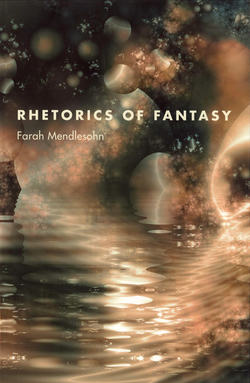Читать книгу Rhetorics of Fantasy - Farah Mendlesohn - Страница 12
На сайте Литреса книга снята с продажи.
The Categories
ОглавлениеThis book is constructed as a set of interlocking essays: with the exception of chapter 5 each of the essays stands alone while leaning against the arguments and definitions of the other chapters. The critical questions in each chapter are: How do we get there? How do we meet the fantastic? In what ways does this meeting affect the narrative and rhetorical choices? How does this affect the choice of language and in what way does the choice of language affect the construction of the fantastic and the position of the reader? What ideological consequences emerge from the rhetorical structures? Perhaps the most crucial question is, Where are we asked to stand in relationship to the fantastic? It is important to understand that I am not discussing point of view, or what Gérard Génette labeled focalization. Focalization is a matter internal to the story and there is no common choice within any of the categories (although one cannot but notice the extensive use of first person in the liminal fantasy). What I am interested in is the reader’s relationship to the framework. Bijoy H. Boruah, in trying to rationalize the empathic emotions of the reader, wrote, “To appreciate fictions is, to some extent, also to fictionalize ourselves” (126), an activity he called “metaphoric participation.” His phrase is peculiarly apt for what I am arguing. That “reader position” to which I will keep pointing, while on the one hand a reference to our ideal and implied reader, is also an invitation to construct a fictionalized self who can accept the construction of the rhetoric of a particular fantastic text. But the invitation is not free and open: it is an exercise in which the author continually seeks the upper hand. In his reader’s report on this book Brian Attebery wrote, “Characters can be categorized variously as being immersed in, or wandering through, or fighting off invasions of the fantastic; readers, however, can take any or all of these positions at once, since they are constantly mediating between the fantasy world and their own experience” (Reader’s report, 2006). Yet what I shall argue here is that the author seeks to control these choices, even while understanding the polysemous and proactive position of the reader. For many authors the task is to anticipate readers’ strategies as part of their own poetics. The core rhetorical strategy of fantasy remains the same: fantasy is constructed with precision through point of view. Like a perspective puzzle, if the reader stands in “the wrong place,” the image/experience will not resolve.
It is almost impossible to deal with each category discretely; thus there will be constant comparisons between the forms I identify in order to show the differences between their workings and tone.
